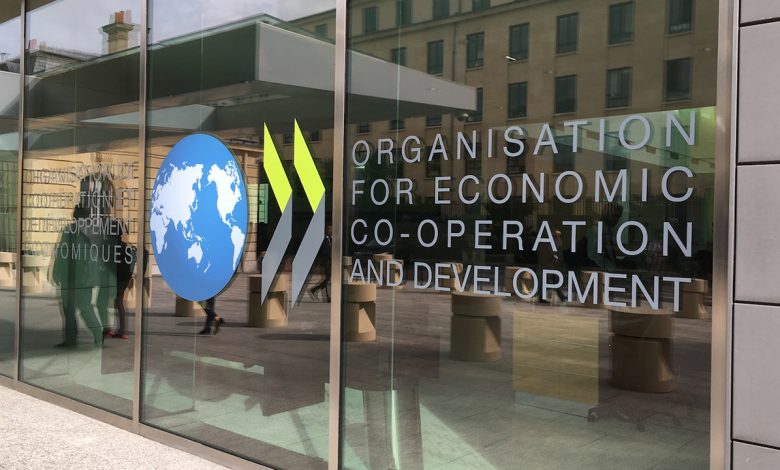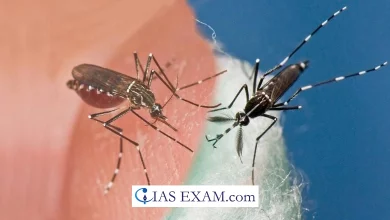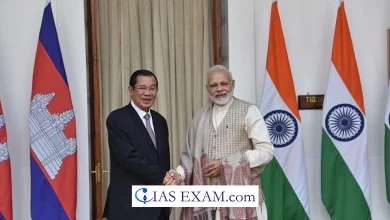Daily Current Affairs for UPSC
Organisation for Economic Co-operation and Development (OECD)
Syllabus- Indian Economy [GS Paper-3]

Context- As China emerges from COVID restrictions and inflation eases, the Organization for Economic Co-operation and Development (OECD) raised its global economic growth forecast on and it warned of vulnerabilities similar to the turmoil in the US banking sector.
Key Highlights
- The global economy is now expected to expand by 2.6% this year, up from 2.2% in November, according to the OECD.
- Paris-based OECD stated in its updated economic outlook titled “A Fragile Recovery” that it remains below the 3.2% expansion seen in 2022.
- In its Interim Economic Outlook report, the OECD stated, “More positive signs have now started to appear, with business and consumer sentiment starting to improve, food and energy prices falling back, and the full reopening of China.”
- However, the report cautioned that the improvement in the outlook is still fragile.
- Risks are now somewhat more evenly distributed, but still lean toward the negative.
- It cited the risk of renewed pressure on energy markets, uncertainty over the course of the war in Ukraine, and the impact of rising interest rates.
- Signs of the impact of tighter monetary policy have started to appear in parts of the banking sector, including regional banks in the United States.
- Higher interest rates could also have stronger effects than expected on economic growth, especially if they expose underlying financial vulnerabilities.
- After recording a loss of $1.8 billion on bonds whose prices were reduced by the higher rates, Silicon Valley Bank’s demise has been linked to the monetary tightening.
About Organisation for Economic Co-operation and Development (OECD)
-
- The Organization for European Economic Cooperation (OEEC) gave rise to the OECD in 1948.
- When the United States and Canada joined in 1961, the OEEC was renamed the OECD to reflect a wider membership.
- It reformed as the Organization for Economic Co-operation and Development (OECD) in subsequent years by the Convention.
- The majority of OECD members are considered developed nations because their economies have very high Human Development Index (HDI) scores.
- Countries that support free-market economies are OECD members.
- At purchasing power parity (PPP), in 2017, the OECD member states collectively contributed 2% of global nominal GDP (US $49.6 trillion) and 428.8% of global GDP (Int $54.2 trillion).
- Because it publishes comparable statistics on a wide range of topics, the OECD is referred to as a statistical organization.
- Official United Nations observers include the OECD.
- Objectives
-
-
- The Organization for Economic Co-operation and Development (OECD) aims to combat poverty by promoting economic stability and encouraging economic growth and cooperation.
- To advocate for policies that will boost people’s economic and social well-being worldwide.
- The OECD has improved living standards in numerous nations over time.
- To encourage global trade and economic development.
- To give countries that say they are committed to democracy and the market economy a place to meet.
- To provide a platform where governments can collaborate to share experiences and seek common-sense solutions to issues.
-
- Focus
-
- Regain faith in markets and the institutions that support them.
- Restore sound public finances as a foundation for long-term economic expansion.
- Through environmentally friendly “Green Growth” strategies and the growth of emerging economies, encourage and support new growth sources.
- Make sure that people of all ages can learn the skills they need to be successful and happy in the jobs of the future.
- Additionally, countries that are regarded as uncooperative tax havens are included on the OECD’s “blacklist.”
- In addition, it required efforts to eliminate tax evasion by profitable corporations and the G-20 nations. Additionally, it encourages the G-20 nations to advocate for tax reform.
- Members:
- Most OECD individuals are big league salary economies with an extremly high Human Improvement File (HDI) and are viewed as evolved nations.
- 36 members, as well as emerging nations such as Mexico, Chile, and Turkey.
- Along with the EU member states, the European Commission participates in the OECD’s activities.
- Secretariat:
- The OECD Secretariat’s information, analysis, and preparation benefit OECD government exchanges.
- The secretariat is responsible for data collection, trend monitoring, economic analysis, and forecasting.
- It also studies social shifts or patterns in trade, the environment, education, agriculture, technology, taxation, and other areas under the direction of member governments.
- Committees:
- Specialized committees focus on specific policy areas, such as economics, trade, science, employment, education, or financial markets, where members and observers meet.
- There are approximately 200 expert groups, working groups, and committees.
- Policies are discussed and progress in a given policy area is evaluated by committees.





.png)



